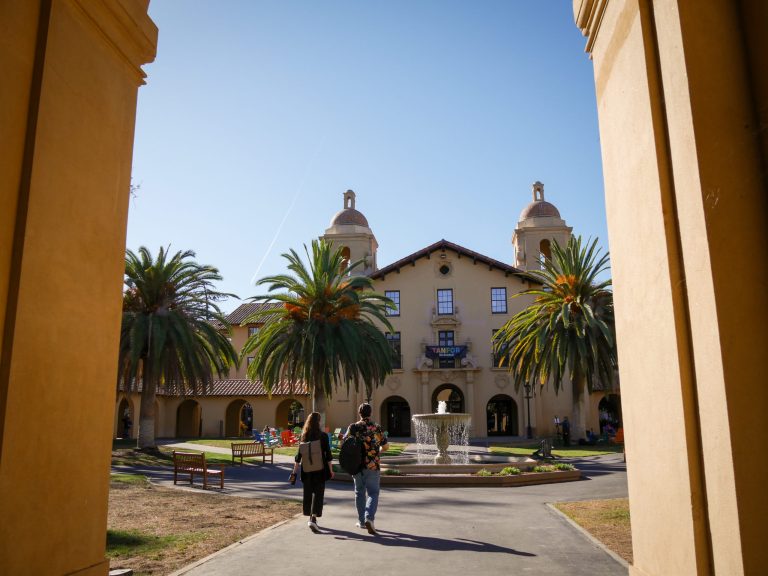The Undergraduate Senate unanimously passed a resolution to address sexual violence during its Thursday meeting, responding to increased campus concern about sexual violence following two reports of rape in the last ten weeks.
The resolution called on the University to “pledge to implement several sensible preventative measures to ensure the safety and well-being of our community members,” including by improving lighting and blue light security systems, making all campus buildings accessible only by key-card and investing in public transportation. In passing the resolution, the Senate also urged Stanford to reinstate the Flip the Script (EAAA) course offering and complete an external audit on current protocol for survivors.
Additionally, the resolution asked University administrators to fire and remove honors from faculty who have been reported to have committed acts of sexual violence. The resolution specifically identified faculty, including biology professor Hunter Fraser, who was arrested and charged with domestic violence, and is still slated to teach two classes in the upcoming Winter Quarter, as well as comparative literature and Iberian and Latin American cultures associate professor Vincent Barletta, who The Daily verified has faced at least three Title IX complaints in the past decade.
The student government invited students to virtually join the Thursday meeting to voice their stances on combatting campus sexual violence. The Senate also provided an anonymous form where students who were uncomfortable or unwilling to speak publicly could provide their input.
Students who spoke at the meeting agreed that the administration needed to take further action, but their approaches differed based on concerns about privacy and security.
Amari Pierce ’24 voiced several ideas on improved security measures, including the streamlining of communication between sexual violence response resources, a separate waiting and treatment room for at Stanford Hospital and decreasing points of contact during the Title IX reporting process. Several of her ideas and concerns were subsequently added by senators to the resolution.
Jackline Wambua ’25 warned that the University should balance privacy with security, among talks about increasing camera presence on campus and in areas where parties are held. She personally believes in bolstering surveillance on campus, which is a necessary measure that “comes with a sacrifice that you should be willing to compromise on.”
On the other hand, Luke Lamberti ’24 cited studies from the Human Rights Campaign that suggest around half of transgender people will experience sexual violence at some point in their lifetime. Lamberti advocated against the increase of campus police and security systems, as “trans people [of color] are more likely to be the victims of police harassment and abuse.”
Senators also read anonymous comments from the form. Students who submitted these comments asked for funding into and increased hours and line services for the Marguerite shuttle, where, in dimly lit areas and traveling to and from campus alone at night, could help prevent potential instances of sexual violence.
Several students also used the anonymous form to criticize Greek life’s role in exacerbating the sexual violence problem on campus.
One anonymous student called the culture “pervasive” and another said that they and their friends do not feel safe going to frat parties. Calls for the total abolition of Greek life — citing that large number of cases of sexual violence are committed by peers and those that victims know — were made by multiple anonymous contributors as well as Lamberti.
“Abolition of Greek life is a crucial part of the fight against rape culture,” one commenter wrote.
Wambua said she recognized the legitimacy of these calls, as she also does not support Greek life, but she said such calls were idealistic given the University’s current position on and financial ties to Greek life. Instead, she said people should focus on finding “realistic” solutions, in which “Greek life is practiced in a way that does not endanger others.”
“I think in even offering some solutions, [students] should be ready to compromise for us even to take a little step forward,” Wambua said.
Senators then voted on the final version of the resolution, which was revised to incorporate several of the community’s ideas.
“We are with you and [ASSU] will not stop fighting until this issue is solved,” said Senate co-chair Amira Dehmani ’24.
